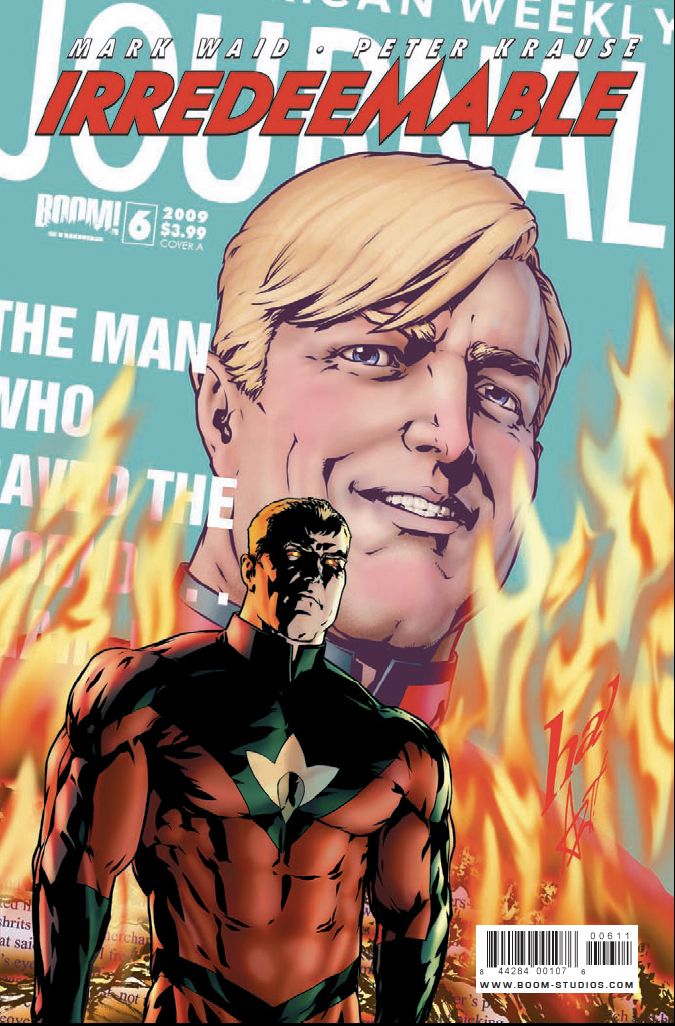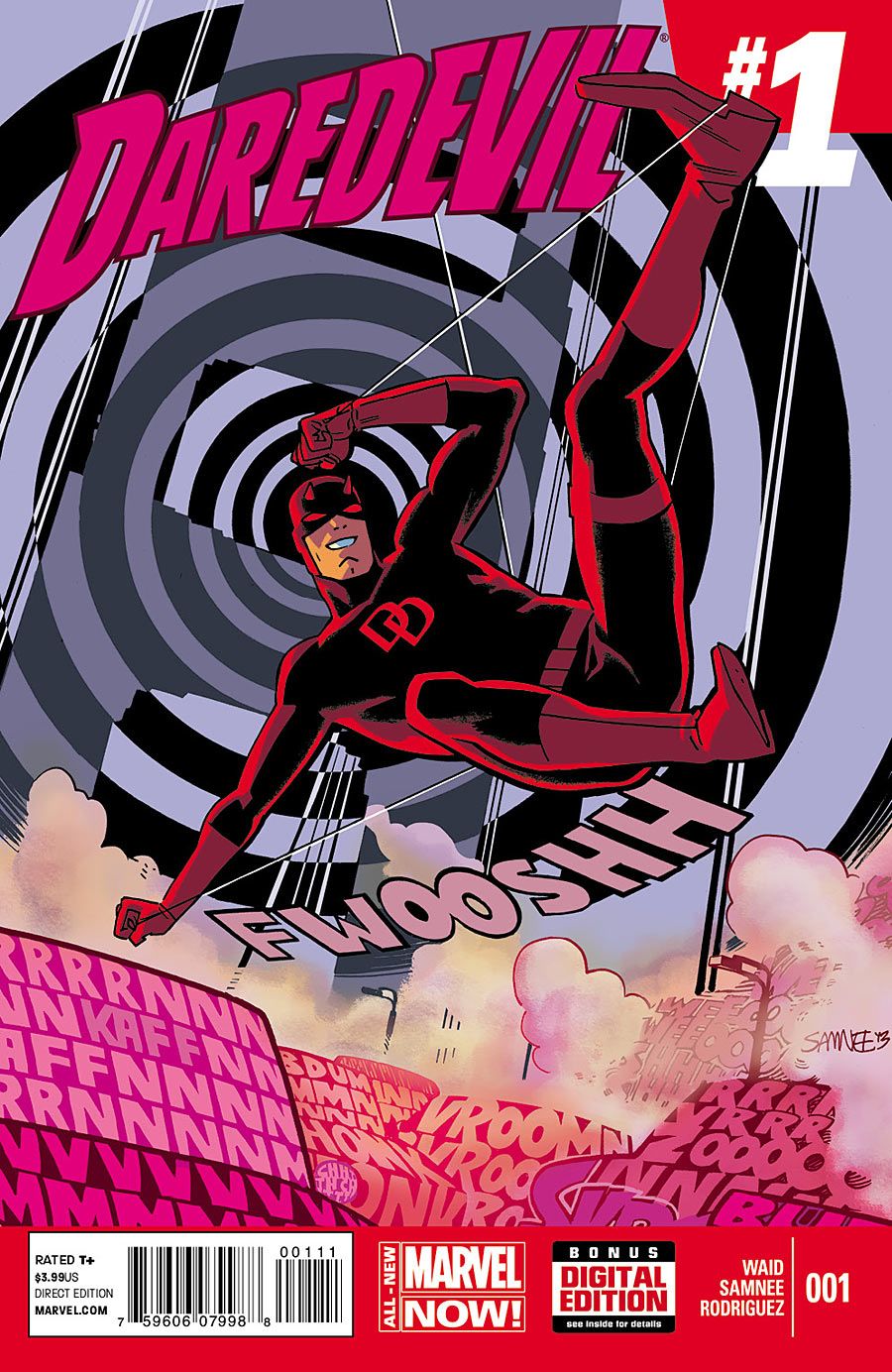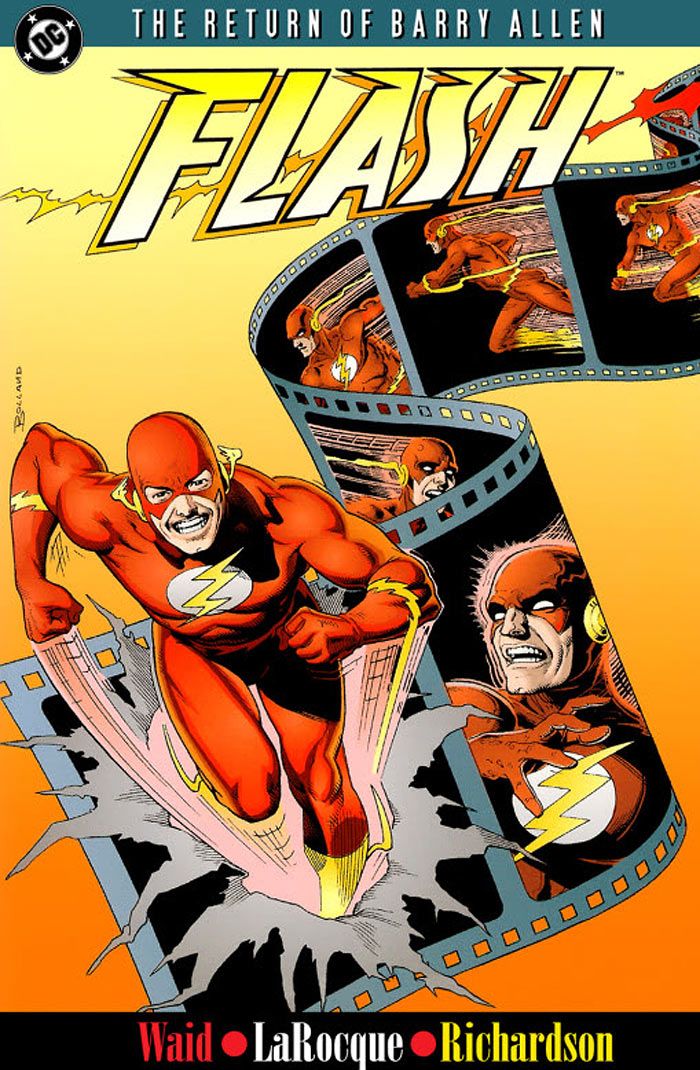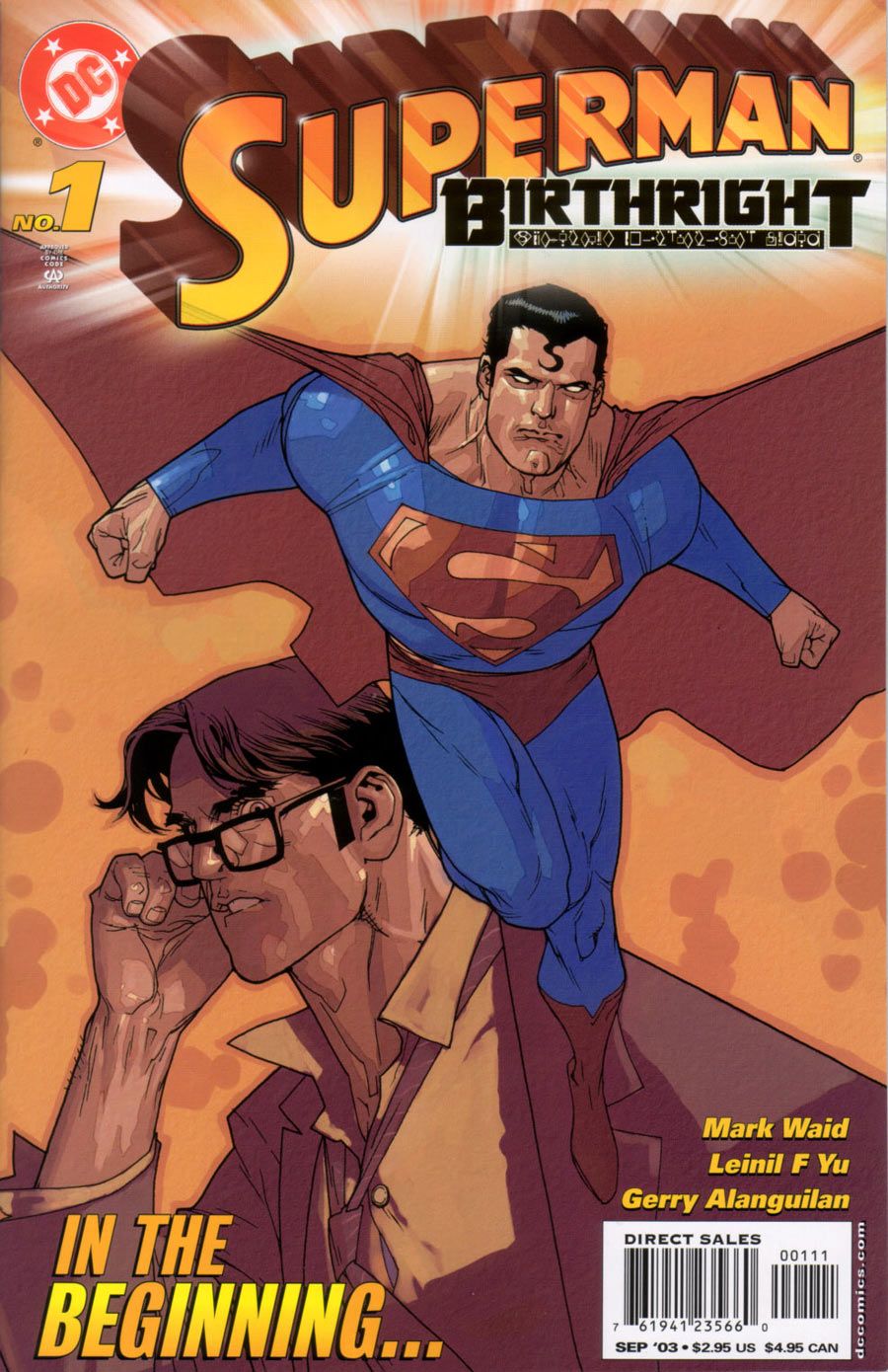Mark Waid has been a lot of things in his celebrated 25-plus year comic book career -- an editor, an Eisner Award-winning writer and currently also a retailer (co-owner of Alter Ego Comics in Muncie, Indiana) and co-founder of digital imprint Thrillbent. The current writer of "Daredevil" and "Indestructible Hulk" for Marvel Comics made himself available to fans Saturday evening at the Long Beach Comic & Horror Con, in a "Mark Waid Spotlight" Q&A panel moderated by "Evil Ernie" writer Jesse Snider.
"He's just such a nice and down to Earth guy," Snider said of Waid. "I'm working for BOOM! Studios when he was the editor-in-chief, and I'm writing 'Toy Story.' He slows down and goes, 'Jesse, I really like your book, man.' That's the kind of guy he is."
Asked how many comics he's written, the veteran scribe responded, "We lost count at 1,500 comic books" about five years ago. The meter keeps running. We've got to be coming in at 2,000 before too much longer." Snider praised Waid's consistency, with Waid responding that the key is ensuring a level of craft so "on the bad days, it's at least serviceable."
Waid, Samnee Give San Francisco a Guardian "Daredevil"
Taking a question from an aspiring writer in the Long Beach Convention Center crowd on how best to coalesce ideas into a script, Waid replied, "There are a lot of steps to that. Comics are a very specialized language, like haiku. You have to be terse. Economy of language is the most important part of comic book storytelling. Look at 'Watchmen' as an example how no line of dialogue is wasted. No panel is wasted. Everything contributes to the story."
"Writing is about instinctual stuff," Snider added.
"It's not about your style," Waid continued. "Your style embellishes the story. You'll never grow as an artist without breaking out of your comfort zone, anyway." Waid explained that every story is, effectively, "somebody who wants something, and something's in his way."
Clarifying his view of the common "write what you know" advice, Waid said it didn't mean "writing stories only about nurses if you're a nurse. Do your research. See the world." Waid said he'll frequently find story ideas simply by coming across news stories online. "Write something at the end of that day that couldn't have been written by anyone else."
A fan concerned about the future of "Daredevil" -- the current volume of the acclaimed series is set to end in February with issue #36 -- voiced his worry. Waid responded, "The current run of Daredevil is coming to an end. Let's just say -- don't worry. Don't sweat it." He couldn't elaborate due to being under "Marvel embargo until Monday." since then, we've learned that Waid and artist Chris Samnee are launching a all-new "Daredevil" series in March.
Asked if he tailors his writing to a specific artist, Waid responded, "Oh, you've got to. It's a collaborative medium. It is only my story until I turn it in, in which time it becomes 'our story.'" Waid said that's why "Daredevil" is credited to "storytellers" Mark Waid and Chris Samnee, and Thrillbent series "Insufferable" is credited the same way with him and Peter Krause.
"Chris Samnee is awesome in little character bits," Waid said. "For someone like Bryan Hitch, you're an idiot to write page after page of conversation, because what he's really good at is having things blow up in two-page spreads."
Asked what his "dream project" would be, Waid asked, "Do you mean besides Superman? If they only published it still," Waid quipped. This transitioned into a discussion of this past summer's "Man of Steel" film, with Waid sharing, "The last words I spoke as I walked into the theater: 'Well, I've adjusted my expectations accordingly. As long as he doesn't kill anybody, I'll be fine.'"
The "Superman: Birthright" did defend the much-discussed "maybe" moment, when Jonathan Kent -- played in the film by Kevin Costner -- answered that Clark should "maybe" have let his classmates die rather than saving them and potentially exposing his secret. "That was the one moment that actually rang true for me. He doesn't say 'maybe' and leave it at that. He says, 'maybe, I don't know...' That's conflict. Here's a moral man who wants his child to do good, and you understand that life is valuable. As a parent, you want to protect your child at all costs. I love that moment of those two things banging up in each other in Jonathan Kent."
"If Jonathan Kent had not died preaching that you should be afraid of things, I think the other thing would have gone unnoticed," Waid added.
Discussing how he broke into comics, Waid said it was a combination of luck, and meeting professionals at conventions and working in fan press. Repeating his oft-quoted notion, Waid said that breaking into comics is like breaking out of a high-security prison -- "they find out how you got in and make sure nobody else can get in that way."
Asked about working with Alex Ross on the influential 1996 DC Comics series "Kingdom Come," Waid described the experience as "tempestuous, but good. The good thing about Alex and me as a team is, we're the only two people in the world who can argue about Martian Manhunter for 30 minutes. The bad thing about us as a team is that we're the only people who can argue about Martian Manhunter for 30 minutes."
Waid said he and Ross were "pressing each other to do our best," and "the results speak for themselves." Waid said he doesn't think "Kingdom Come" is the best thing he's ever written, but he appreciate what it means to people -- and said he's surprised these days when he's presented with a copy to sign. "I assume I've already signed them all."
Snider asks the natural follow-up: What is Waid's favorite thing he's written? "'Superman: Birthright' or my run on 'Fantastic Four.'"
A fan inquired if there was a series or story that Waid saw as representing a turning point in his career, and the writer named "The Return of Barry Allen," the 1993 arc from "The Flash." With that story, Waid said he felt "like the training wheels are coming off" -- though he still struggles with self-doubt as a writer. "Every time I sit down at the keyboard, to this day, I think, 'This is the day they find out I'm a fraud.'"
Waid told the crowd he enjoys taking scripts in spontaneous directions, down to not necessarily knowing the resolution of cliffhangers on an issue-to-issue basis. "If I don't know, you can't guess," he said, explaining his logic. "That is part of the fun -- figuring that stuff out on the fly. Working without a net. It's not supreme confidence in my abilities, it's the fun part, to me."
When asked if he was concerned about the next writer on a series "resetting" changes he's made to a character, Waid responded, "That's the thing about corporate-owned superhero comics. Ultimately, they are about the status quo. You can make big changes to some degree, but the next guy has the right to come in and reset the clock."
Waid continued, saying, writers have a "responsibility to these characters, because they've been around since before you were born, and they'll probably be around after you die. You can never put your ego in front of these characters that are, in a sense, real to people. Not 'crazy people real.' I don't care how long or what I do, Superman's contribution to culture is far more than mine will ever be. And I'm OK with that."
A fan of Waid's BOOM! Studios work asked what the impetus was behind "Irredeemable" and "Incorruptible." Waid said the former was inspired by "years and years and years of growing up reading superhero stories that teach you certain things... some of the messages don't apply to the real world as much as you'd like them to." "Incorruptible" came about through more practical needs: A plan to put a companion book on the schedule resulted in the idea of, "Let's do 'Irredeemable' in reverse."
"You've got to be honest with yourself as a writer," he said. "'Irredeemable' was really hard to write. Every issue was like turning over rocks in my personality. 'Oh, man, that's really dark.'"
"A sense of legacy," Waid said, answering if anything been lost in the comic book industry that Waid would like to see come back. "A sense that there is a past to these characters and a world that exists beyond two years ago. That's one of the awesome things about long-form serial fiction that takes place over 75 years." Waid said that's something unique to American comic books, and cited Grant Morrison's "Batman" run has a good example of a sense of legacy, with its "everything happened" approach.
An audience member asked Waid what recent titles he'd use as part of a theoretical reading list for a comic book literature class. Waid named "Love and Rockets" book "God and Science: Return of the Ti-Girls" (due to both being a good story and that it "touched on interesting sociological issues and issues of feminism") and "Y the Last Man," calling the latter "a great example of culture clash and gender clash."
Dispensing more writerly advice, Waid said, with superheroes, no matter how powerful, "It doesn't matter what their powers are. What matters is getting inside their head and figuring out what they want." Addressing his strengths as a writer, Waid said he's good at the "MacGyver" thing -- if he needs a character to create a thunderstorm and he can't use Thor and he can't use Storm, he'll figure out, "How can Ant-Man start a thunderstorm?"
Waid was asked if he would advise someone to open up a comic book store, following his experience thus far as a retailer. "It really depends on where you're opening it up," he answered. "I could do that in Muncie, Indiana. You can buy a house on a credit card in Muncie, Indiana. If you want to open it in Santa Barbara, you're screwed. If you want to open it up in San Francisco, forget it."
Speaking of Alter Ego specifically, Waid said it was "a very specialized situation." "All I care is that it doesn't lose money. If it doesn't lose money, then it's a good thing for the community. It's a good place for me, as a digital comics guy, to play around with how we bridge the gap between digital and print, and digital and brick-and-mortar." He admitted he finds the monthly Diamond "Previews" catalog to be daunting, though, remembering the days where the list of comics coming out in a month fit onto one page in a fanzine. "It's great, there's a lot to choose from, but going through that and trying to figure out how many issues of 'Aquaman' to order that month -- I don't know.There's no science to it"
Closing out the panel, Waid was asked if there was a current series that if someone wasn't reading, they're not "a true comic book fan." "'Hawkeye,'" Waid said. "If you're not reading Hawkeye, you're doing it wrong."





